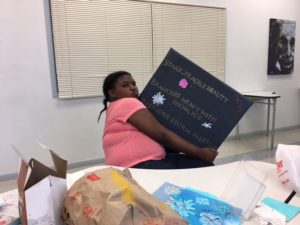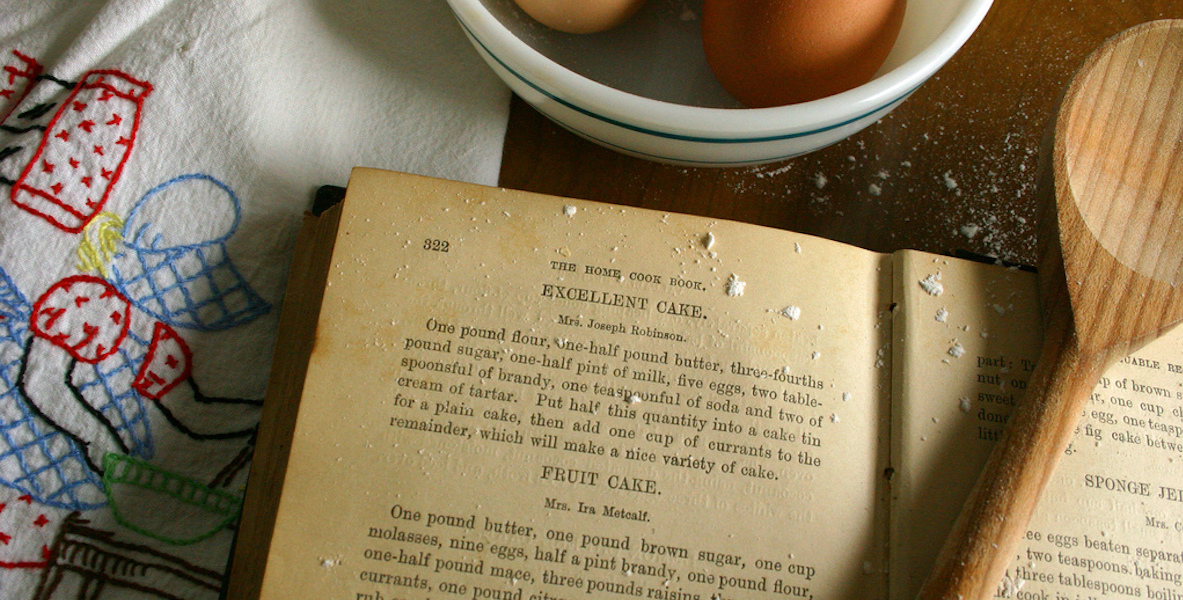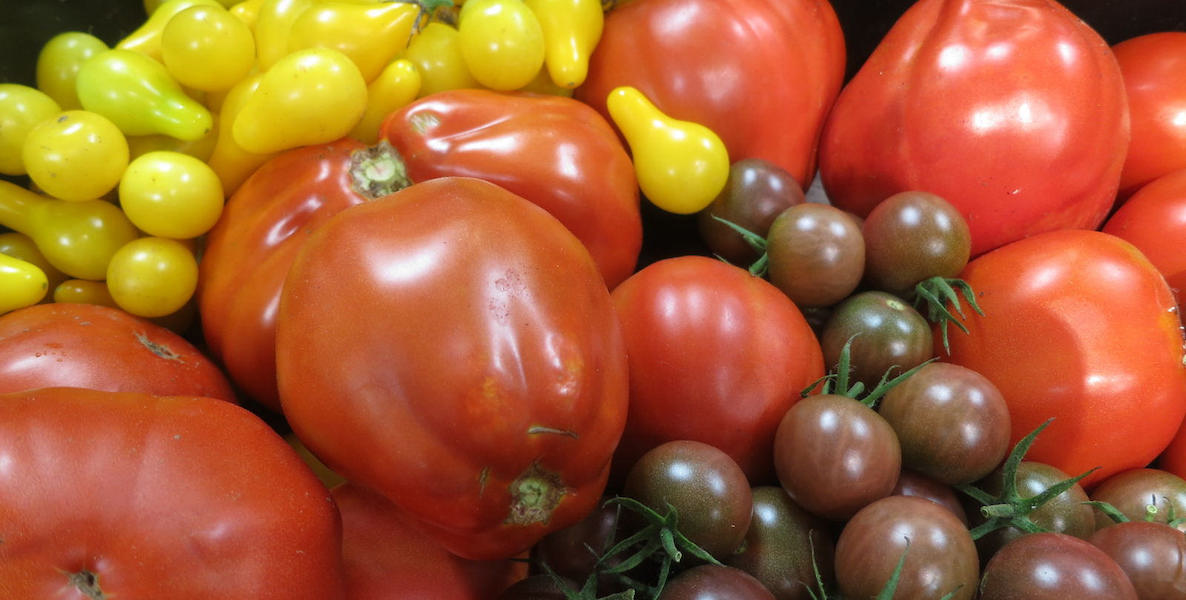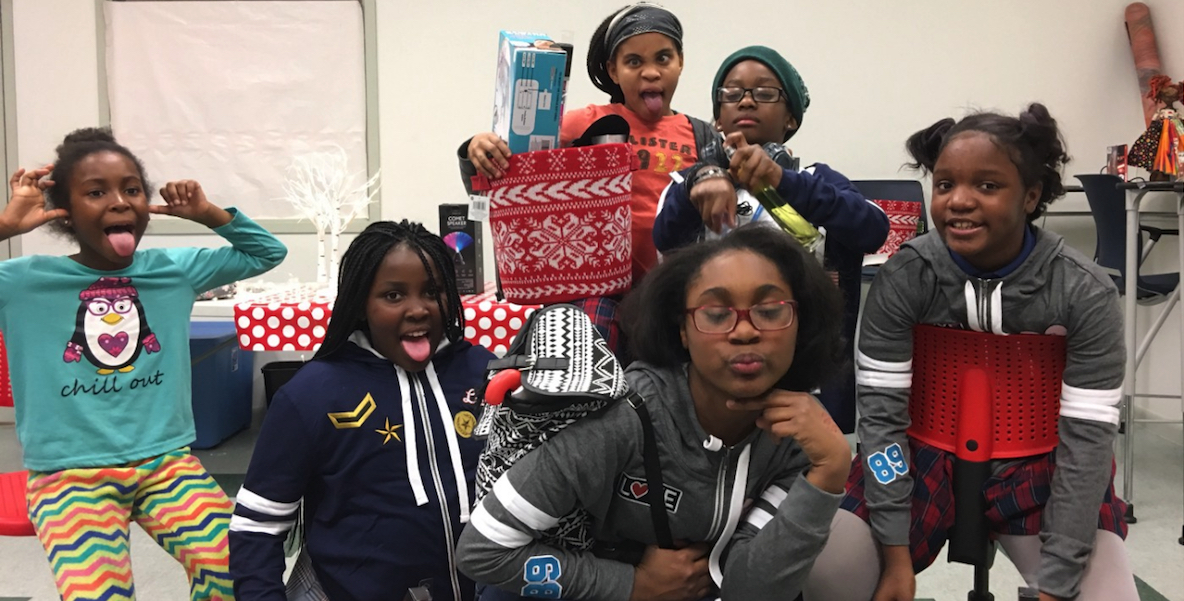I wasn’t what you would call a good kid. In fact, I still owe my Spanish teacher an apology, which I would happily give if I could remember the man’s name. He doesn’t particularly stand out for me, which might be why I was pissed at him all the time. I was a bad kid, when they still labeled kids as “bad,” but even bad kids get a miracle sometimes.
Mine came in the form of my 11th grade English teacher, Penny Deleon, who taught me a lot more than English. Penny (as she let me call her) saw something in me; something that surpassed my anger with the world, something beyond the wall that kids like me put up to hide our hurt or disillusionment. And she spent one precious year gently, and lovingly, showing that something to me.
Penny was something I had never experienced before in a teacher — a free spirit. She was refreshing and interesting and powerful. She was attentive, and I felt, even as I sat in a classroom full of kids, that she was talking directly to me. She told me I could write, and by the end of the school year I believed her.
One year, that’s all it took. One year in my jumbled, crazy life, where I struggled between adolescence and adolescence, 16 and 17, less grown and half grown. One year of one-on-one attention, acceptance, freedom to explore through words, and I believed.
Penny changed the course of my life, and even this 30 or more years later, I still feel the impact of that change and that — more than anything — is what I want to share with the world.
A while back, I found out how powerfully one letter could affect a family. Armed with knowledge of that power and my belief that every kid should have the opportunity to experience that Penny-Deleon-kind-of-freedom to explore their truth through writing, I started the Letter to My Father for Kids Workshop.

![]() Last school year I had the chance to run a workshop with a group of funny, kind, loving, and in many cases shattered young ladies who were strong enough, and brave enough, to work on and share their relationships with their fathers. We spent the year discovering who our fathers are/were and how our relationship/lack of relationship with him affects/affected our path. It was one of the best years of my life.
Last school year I had the chance to run a workshop with a group of funny, kind, loving, and in many cases shattered young ladies who were strong enough, and brave enough, to work on and share their relationships with their fathers. We spent the year discovering who our fathers are/were and how our relationship/lack of relationship with him affects/affected our path. It was one of the best years of my life.
I understood going in, that for the program to work, the participants had to buy in from day one. After all I would be asking them to talk about something that affects all of us in one way or another. I went in a bit shaky but determined to win them over. Day one success came in the form of a brightly colored paper key.
“This is your house,” I said. “And what’s the major rule of the house ? What happens in here stays in here. What’s said in the house stays in the house. When you take this key, you accept that you are a part of our family, and we care for and respect each other by protecting what we say and do in this house.”
They peered at me, a bit in awe I think — trying to figure out if I was “for real,” if I was just another adult trying to be cool, another exploding adult who would quickly yank back what had been promised. Then they tested the waters, a few cussing and making outrageous statements for attention and daring. I cringed inside with each “my father is a piece of shit.” But I bought into it, remained silent, agreeable with the sentiment if not the delivery — I had made the rules.
There was still pain, but it felt dull now, overshadowed by happiness and joy. All their problems with their dads had not been solved, but they had the tools now, to speak their truth, to ask for what they needed from their fathers, and the power to put it simply in a letter.
The offer of free expression came with the challenge to sit with it, respect the pain or hurt behind it, then offer another way of conveying the heartache. Children do not necessarily believe in your offer of a “safe place,” so many of those promises end up being just the opposite, but when they trust you, as Penny Deleon trusted you, that’s when the real magic begins.
When was the last time you shared a truth about your dad?
I have been doing Letter to My Father Workshops in one form or another for about 10 years and no one has been able to answer that question easily, without a bit of thought, sometimes tears, or maybe a tiny, secret smile. Truth telling, especially about this most intimate relationship, is shocking to our systems.
We are taught, whether intentionally, or unintentionally, that this relationship is off limits. If your dad is in jail and you must be patted down by a guard to see him, how safe will the relationship feel to you? How could you complain about your father not having time for you when he’s a police officer who goes out to save the world everyday? Exactly how do you talk about his new girlfriend; your jealousy toward her kids who live with them?
This is soul wrenching stuff I’m asking of a group of adolescent girls.

In October, I started with 15 girls; by the end of the after school workshop in June, we were down to six. The change that I’ve seen in these girls has been amazing. They are smart, brave, strong — astonishing — and I poured everything I had received from my 11th grade English teacher into them.
![]() I couldn’t realize at 16 that most of my anger stemmed from my father’s early abandonment. He’d left when I was four years old and returned when I was about 12 or 13. By that time, I had learned not to depend on him, or any man for that matter. I took my anger out on my teachers and classmates, experienced sudden fits of rage that turned me into someone I didn’t want to be.
I couldn’t realize at 16 that most of my anger stemmed from my father’s early abandonment. He’d left when I was four years old and returned when I was about 12 or 13. By that time, I had learned not to depend on him, or any man for that matter. I took my anger out on my teachers and classmates, experienced sudden fits of rage that turned me into someone I didn’t want to be.
There had been no one in high school to listen, to help me through my feelings of ugliness and unworthiness; no one but Penny. I shared this with my girls, and as they stared wide-eyed at this grey-haired woman confessing her weaknesses and strengths, they began to understand the relationship between my feelings about my father and my behaviors. And, perhaps, apply this understanding to themselves.
During the second week, I introduced the Letter to My Father Workbook for Middle Schoolers to the group. They were not enthused. Working through 10 worksheets each week felt like homework to them. So I put them aside and trudged on, not realizing that the pages didn’t stand a chance, until later, once I had gained their trust.
Over the next eight months I introduced numerous writing techniques and artistic projects to help them dig down deep, shovel out tiny or huge pieces of love, hurt, indifference, or anger; one project at a time.
We are taught, whether intentionally, or unintentionally, that this relationship is off limits. If your dad is in jail and you must be patted down by a guard to see him, how safe will the relationship feel to you?
Throughout the workshop year I opened most sessions with a simple, yet powerful exercise — Father Flashcards.
- If I had to describe my dad as a volume of noise that volume would be_________.
- Dad, I try to make you happy by______.
- Dad, you treated my mother like____and I_____you because of it.
- ______reminds me of you.
- If I had to describe my dad by a color, his color would be______.
A hundred different cards. A hundred different conversation starters. A hundred different opportunities to re-think the parental relationship. This simple activity opened so many doors, chipped numerous bricks and solidly built walls, allowing us to explore and express in a crazy, wacky, freestyling format.
One of my girls loved the solar system card: If your dad was a planet, which one would he be?
“Pluto, because it is the furthest away, like my dad.”
Another always seemed to get the animal card: If you had to describe your father as an animal, what would he be?
“A big, brown bear because he’s big and cuddly.”
But everyone hated the dream card: If you had a dream about your father, what type of dream would it be?
“A nightmare.”
Though I didn’t realize its truth until much later, one thing that my writing with Penny revealed to me is that parents, according to the natural order of things, are placed on a pedestal by their children. Saints and sinners, drug addicts and drug dealers, writers and readers — it really doesn’t matter — they are all looked up to by their children.
This positioning is a kind of invisible line and the only way to get the girls to cross it was to shrink the distance between the pedestal and the child. Allowing the girls to think of their relationships with their fathers as colors, materials, or liquids, also allowed them to inch closer toward the pedestal.
Give a kid a flower pot, a hard floor, and permission to drop it as many times as ![]() they like. Tell them the pot represents their father, and the drop their relationship with him — you will get anything from four pieces of broken pottery, to a bag of orange sawdust. Remind them as they are dropping that pot that they will have to remake it into something new. Hand them glue, paint, markers, and a hundred other decorative devices and sit back and watch them transfer feelings onto an inanimate object.
they like. Tell them the pot represents their father, and the drop their relationship with him — you will get anything from four pieces of broken pottery, to a bag of orange sawdust. Remind them as they are dropping that pot that they will have to remake it into something new. Hand them glue, paint, markers, and a hundred other decorative devices and sit back and watch them transfer feelings onto an inanimate object.
Izzie carefully painted her pieces of flower pot bright blue and pink, lined them up delicately around a wooden picture frame before adding silver sparkles and colorful gems. Maria glued together four large pieces after writing on each with a black marker: “I hate you. You’re a piece of shit. Bastard. I hate you.” No decorations. Someone else fashioned a necklace — a chain to keep him close.
Give a kid a flower pot, listen and watch, as the room fills with light laughter and heavy pain. Sit with them as they work, their foreheads wrinkled with thought and emotion. Watch freedom explode from their souls as their fingers struggle to glue back together broken relationships and add to “good” ones.

Luckily for me, I have an incredibly talented sister, Catherine Smith-Hull, who not only developed most of the creative projects for me to use during the yearlong workshop, but also gave us instruction and mentoring. These artistic activities provided a safety net and proved to be invaluable.
The head and heart posters was one of the favorite activities. The girls outlined their upper body on paper (head and chest), cut them out and glued them on poster board. Then they filled the boards with pictures and words that represented their perceptions of their fathers’ thoughts and feelings about them, or their perception of the same about their fathers.
Everyone hated the dream card: If you had a dream about your father, what type of dream would it be? “A nightmare.”
The pure honesty of their work cannot be duplicated. Their tenacity and truthfulness voiced a personal story for each of them. I became their wordsmith, cutting out paper letters and phrases as fast as I could; smiling as shapes, faces, objects, were snatched by the swiftest hand. They were fascinated both with their outlines and what they filled them with.
Haiku! They loved haiku! The lesson on writing haikus about their fathers, taught by our guest, English Professor Lorene Cary, remained with them throughout the rest of the workshop. They dove into the rhythmic five-seven-five syllable poetic style with excitement and vigor. They came in day after day with “Can we write more haiku’s today?” Of course, they could.
I’ve got nothing, why?
Nothing to do, why not huh?
And nothing to say.
Raindrops falling down
Upon my red chubby cheeks
A kind of nature.
Through haikus they sung their stories, brought them to life, as if desperate to leave their mark upon the world, to yell, “We’re out here, we’re out here — please pay attention to us!” They took their haikus on the road representing Art Sanctuary at the Barnes Foundation. They were loud, strong and fabulous.

Around the holidays, we made cards for their fathers. Thanksgiving greetings where they spoke of missing them at dinner; Christmas cards where they hoped for a gift; and Valentine’s Day where they drew pink and red hopeful hearts.
But their pictures and words were changing. They were taking on a softer tone, as if just the freedom to draw and write them were a healing balm. I reintroduced the workbooks again in November, once a relationship had been established, and they responded positively to the pages. I was safe. The book was safe. Our space was safe.
Finally, we began to write letters to their fathers. I asked them to pick a card and use their answer as the first line of their letter. I read their work with Penny Deleon pride and love.
Dear Dad,
I think of you as a rough spiky piece of glass because you were not there for me as a little girl. I feel as though you blamed me for not being the person you wanted me to be. It’s your fault that you missed out on my life. I think now that you feel guilty and that now you’re trying to be in my life.
I appreciate it, but I really don’t think you should have the title to be called a dad, period. I feel as though you hurt my feelings because I always thought it was my fault that you left. But no, I was wrong. You’re the one who left, and you’re the one that always made me feel as though it was my fault. So, it was your fault. I still love and I will always love you, but I think you are a huge asshole.
Love you, Dad
P.S. I still love you.
![]() Brought tears to my eyes, reading these letters. Father letters, from a group of girls who’d whispered their thoughts, if they dared, about their fathers when we began. They are honest and brave exposing feelings not only about themselves, but also about their fathers. I began to understand, to get just a glimpse of what Penny must have seen in me. It was blinding, the brightness in them.
Brought tears to my eyes, reading these letters. Father letters, from a group of girls who’d whispered their thoughts, if they dared, about their fathers when we began. They are honest and brave exposing feelings not only about themselves, but also about their fathers. I began to understand, to get just a glimpse of what Penny must have seen in me. It was blinding, the brightness in them.
Our final project was sketching their haikus on vinyl canvasses with paint markers. A much smaller group now, we shared intimacies and everyday stories. They talked to me with a comfortable confidence that reminded me of Penny and me toward the end of our special year. I asked about their days, weekends, school lives, and they shared tales about their teachers, other activities, but most of all, moments with their dads.
There were moments now, hours, days, vacation plans, time to be spent with their fathers. There was still pain, but it felt dull now, overshadowed by happiness and joy. All their problems with their dads had not been solved, but they had the tools now, to speak their truth, to ask for what they needed from their fathers, and the power to put it simply in a letter.
Tina Smith-Brown is the author of Letter to My Father: Daughters to Daddies, and creator of the Letter to My Father curriculum. This is one in a series of articles that will run on The Citizen and SafeKidsStories.
Header photo: Tina Smith-Brown










